“I don’t care whether you’ve never listened to anyone before in your lives. I am begging you right now. If you don’t disperse right now, they’re going to move in, and it can only be a slaughter. Would you please listen to me? Jesus Christ, I don’t want to be a part of this!”
~Professor Glenn Frank (Kent State)
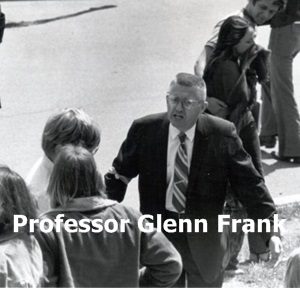
The number of lives Prof. Frank saved is unknown, but it is safe to say that on that day, he was one of the few heroes.
~~~~~~~~~~~~~~~~~~~~~~~~~~~~~~~~~~~~~~~~~~~~
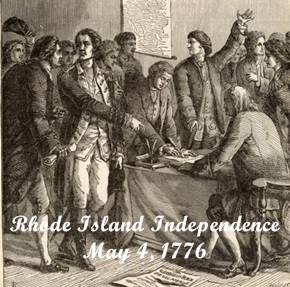
1776 – Rhode Island, the colony founded by religious dissenters from the Puritans of Massachusetts Bay Colony, became the first North American colony to renounce its allegiance to King George III. Ironically, Rhode Island would be the last state to ratify the new American Constitution more than 14 years later.
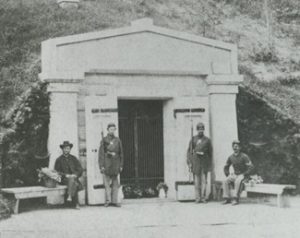
1865 – President Abraham Lincoln was laid to rest at the Oak Ridge Cemetery in Springfield, Illinois … but it was only a temporary rest. Lincoln’s coffin was moved 17 times, mostly due to numerous reconstructions of the Lincoln Tomb and fears for the safety of the president’s remains.
In 1876, thieves failed in an attempt to steal Lincoln’s corpse and hold it for ransom. A select group of trusted confidants elected to hide Lincoln’s coffin in the basement of the tomb, setting the coffin on the ground and covered it with bits of lumber left over from the tomb’s construction, disguising the coffin as a woodpile. Two years later, they managed to find a dry corner in another part of the tomb basement to bury the coffin under just a few inches of dirt.
In 1900, a complete reconstruction of Lincoln’s tomb was undertaken, and Lincoln’s remains were again exhumed. On September 26, 1901, his coffin was placed in a steel cage 10 feet deep and encased in concrete in the floor of the tomb. His body, along with that of his wife and three youngest sons, now lies in the Lincoln Tomb, a grandiose structure named one of the first of the United States’ National Historic Landmarks in 1960.
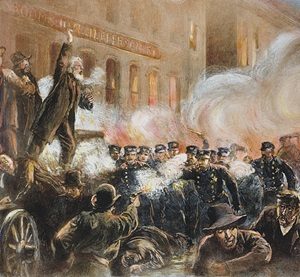
1886 – What began as a peaceful labor protest in Haymarket Square in Chicago turned into a riot, leaving more than 100 wounded and 8 police officers dead.
The crowd at Haymarket Square was listening quietly to speakers advocating a mandatory eight-hour workday for employees. As the final speaker was winding the rally down, police officers forced their way toward the stage to disperse the crowd, provoking someone to throw a bomb into the crowd.
After the explosion, officers began firing wildly in all directions, inciting a riot among protestors. Sixty police officers were wounded and eight died. Although the public was later led to believe that the deaths resulted from the bomb, seven of the eight fatalities and the great majority of the injuries were caused by shots fired by fellow officers during the confusion.
Despite the lack of evidence linking the eight defendants to the bomb, all were found guilty and seven of the eight received death sentences. On November 11, 1887, four of the defendants were hanged. One man, also scheduled for execution, killed himself the day before. Governor John Atgeld pardoned the remaining three defendants in 1893, after they had served seven years in prison.
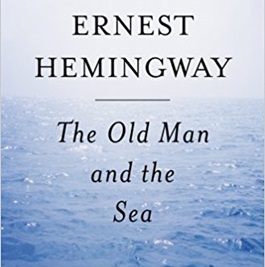
1953 – Ernest Hemingway won the Pulitzer Prize for Fiction for Old Man And The Sea. It was the last major work of fiction by Hemingway published during his lifetime.
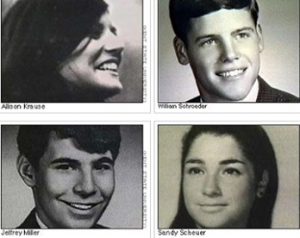
1970 – In Kent, Ohio, 28 National Guardsmen fired their weapons at a group of antiwar demonstrators on the Kent State University campus, killing four students, wounding eight, and permanently paralyzing another.
Two days earlier, the National Guard troops had been called to Kent to suppress students rioting in protest of the Vietnam War and the U.S. invasion of Cambodia. The next day, scattered protests were dispersed by tear gas, and on May 4 class resumed at Kent State University.
By noon that day, despite a ban on rallies, some 2,000 people had assembled on the campus. National Guard troops arrived and ordered the crowd to disperse, fired tear gas, and advanced against the students with bayonets fixed on their rifles.
Minutes later, without firing a warning shot, the Guardsmen discharged 67 rounds toward a group of demonstrators in a nearby parking lot, killing Jeffrey Miller, Allison Krause, William Schroeder, and Sandra Lee Scheuer … and it must be noted that neither Schroeder or Scheuer were demonstrating. Both were headed to class when they were shot down.
In 1974, at the end of a criminal investigation into the Kent State incident, a federal court dropped all charges levied against eight Ohio National Guardsmen for their role in the students’ deaths.
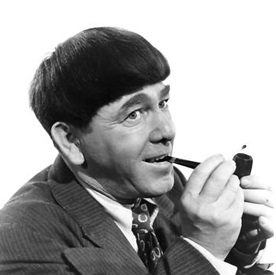
1975 – Moses Harry Horwitz, known professionally as Moe Howard, and best remembered as the de facto leader of The Three Stooges, died of lung cancer. He was 77.
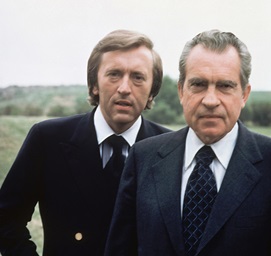
1977 – British journalist David Frost interviewed former President Richard Nixon.
In the televised interview, Nixon answered questions regarding the Watergate scandal and his resignation, admitting that he had let the American people down through his role in the 1972 Watergate burglary and cover-up. The ensuing investigation exposed rampant corruption in his administration and led to his resignation in 1974.
Despite damning evidence to the contrary, Nixon still did not believe that he had tried to obstruct justice, one of the impeachment charges made against him by Congress in 1974. He told Frost, “I didn’t think of it as a cover-up. I didn’t intend a cover-up. Let me say, if I intended the cover-up, believe me, I would have done it.”
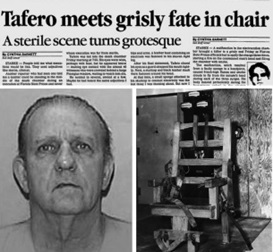
1990 – Jesse Tafero was executed in Florida after his electric chair malfunctioned three times, causing flames to leap from his head. Tafero’s death sparked a new debate on humane methods of execution. Several states ceased use of the electric chair and adopted lethal injection as their means of capital punishment.
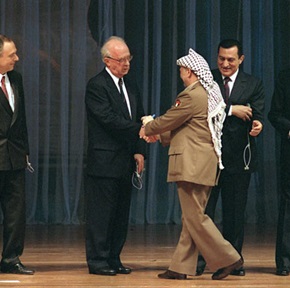
1994 – Israeli Prime Minister Yitzhak Rabin and PLO Chairman Yasser Arafat reached agreement in Cairo on the first stage of Palestinian self-rule. This was the first direct, face-to-face agreement between Israel and the Palestinians and it acknowledged Israel’s right to exist.
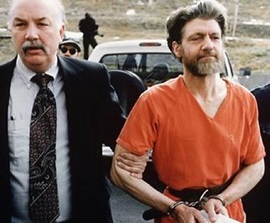
1998 – A federal judge in Sacramento, California, gave “Unabomber” Theodore Kaczynski four life sentences plus 30 years after Kaczynski accepted a plea agreement sparing him from the death penalty.
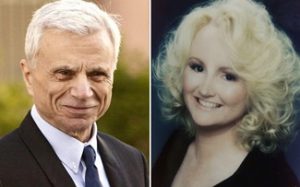
2001 – Bonnie Lee Bakley, the wife of actor Robert Blake, was fatally shot while sitting in Blake’s parked car outside a Los Angeles-area restaurant. Blake was charged with Bakley’s murder, solicitation of murder, conspiracy and special circumstance of lying in wait. In March 2005, a jury found Blake not guilty of the crimes.
The murder remains unsolved.
Compiled by Ray Lemire ©2018 RayLemire.com. / Streamingoldies.com. All Rights Reserved.